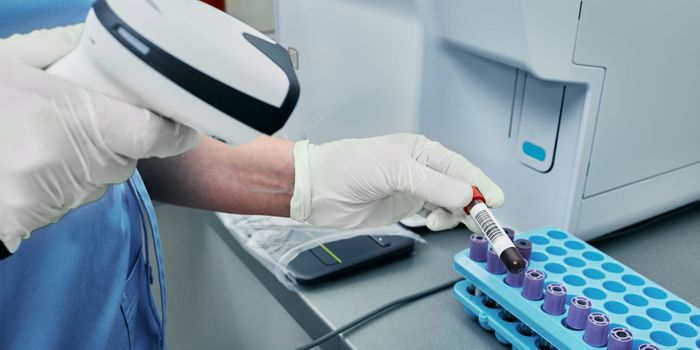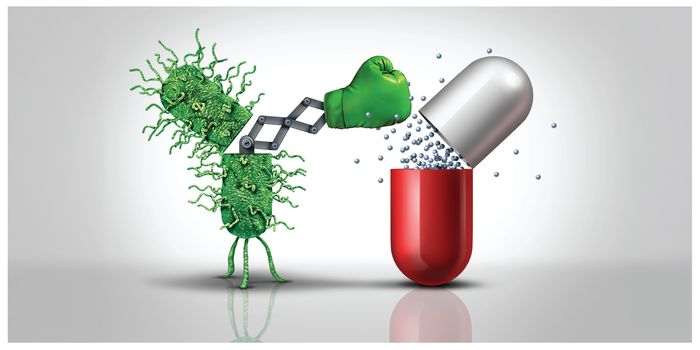Here Are Five Reasons Why Science Isn't Always Perfect
Even though it's awesome, science isn't perfect.
Despite the fact that science involves math, an absolute way of figuring reality into a countable unit of measure, and that science continues to change the world and revolutionize technology for making life easier, fighting off diseases, preventing bodily failure, inventing new contraptions, and more, science is still actively performed by imperfect humans.
There are various things in the world of science that can make an otherwise legitimate scientific study biased, whether it’s the fault of the researcher performing the study, or the fault of the world around the study.
Dr. Kiki Sanford shares that there are plenty of biases that can make scientific data incomplete or not fully accurate. Biases can range from the sex of the scientist, the location and timing of an experiment, the documentation of a topic, or even whether or not scientists are willing to come in second place to perfect an existing scientific theory.
Sanford shares five excellent ideas for why there are times when science alone isn’t perfect.
1. Convenience Bias
The first thing Sanford explains is that there is a such thing as convenience bias, in which researchers can’t always observe reality for scientific data when they should, and instead, can only do so on their free time during certain parts of the year and in certain locations where the variables are present.
For example, it’s hard to watch animals when they’re never in the locations you want them to be in, and when you can only observe them during a certain part of the year and not during another part of the year, because animals act differently during different parts of the year.
As Sanford notes, this leads to “most research being carried out during single seasons, rather than year-round,” while the schedules of school and day jobs are mostly to blame for this. Only about 5% of animal-based experiments seem to occur year-round.
2. Sex Bias
Another thing that Sanford explains is that there is still a lot of sex bias in the scientific community; men are more available during times of research than women in that they’re more likely to be hired because both men and women leading research studies seem to pick men over women when the two apply for a position 2 to 1.
“There are still more men in science than women,” Sanford explains. “More and more females are studying in the sciences than ever before, but the people in charge are still mainly men.”
Although it doesn’t seem like a huge footprint in whether or not science will be accurate, it does affect the “culture” of the practices because women and men can prioritize and perform ideas differently based on how their minds work.
Men are more likely to be heard from in scientific journals and get picked for the jobs post-graduate school where all of the big research discoveries are actually carried out, which poses an imbalance in the social status of modern science.
3. Publication Bias
Yet another problem in modern science is publication bias. This is where publications cherry-pick what experiments are worth publishing about based on whether or not they’re “exciting,” as Sanford calls it, rather than actually helpful to the community.
Although some experiments and studies would be considered more interesting, the idea here is that publications still need to share important factual research about the not-so-interesting topics so that information can be learned and shared across the board, and not just what will get the most hits.
4. Results Bias
All experiments lead to results: you put input into the big science machine and you get output out of the big science machine. But sometimes, scientists pick and choose what results are important to them, while other small details get left in the dust, and this is known as results bias.
Results bias can actually work hand-in-hand with publication bias, because since scientists are so avidly working hard to become recognized, they may often choose the details of the results of an experiment that they know people are going to want to know about, and use them to their advantage, leaving out important details that may later on be disproven.
“Researchers often overlook negative results that could be quite informative,” Sanford explains. “Or go so far as to cherry-pick data for their analyses.”
Moreover, “scientists who are still trying to cement their careers are less likely to do studies that try to replicate the results of others; there’s no glory in being second in science” Sanford continues.
So while more and more studies lead to more impactful results that are beneficial to the community, new scientists simply aren’t taking the time to re-perform and perfect these experiments because there’s no self-motivation to do them or hardly any award to win in the long run because someone else has already done it.
5. Money Bias
Money plays a big role in everything, like cost of equipment, travel, and hiring researchers, which means that money can create a bias in science when there isn’t enough of it.
Funding is a huge part of science, and people often donate money to scientific causes (such as finding a cure for Cancer), but it can also come from the government or private funding sources. When not enough money is available to fund a project, the full vision of its results will never be realized, and scientists will continue to raise questions instead of finding good answers.
“Political priorities have left less than 8% of researchers who apply for government funding actually receiving it,” Sanford notes.
Another problem is that funding sources will pick and choose what research departments are “practical” to them and not necessarily help fund the underdogs that might be trying to fill a small gap in the scientific community.
Most of these five things that Sanford shares and talks about in the video below are all bottlenecking science, but they’re not the only biases out there. Despite the struggles, science is a vast academic that we continue to learn from and grow from as a civilization thanks to its practices. From the standpoint of a researcher, the trade-offs are well worth the benefits in the long run.
Science isn’t going anywhere, and it leads to amazing things.
Source: Discovery News









